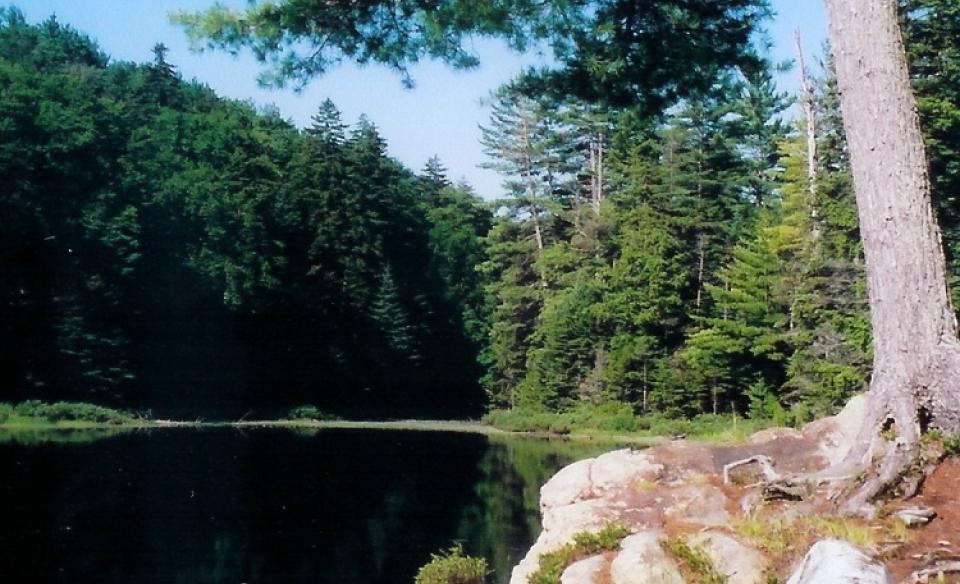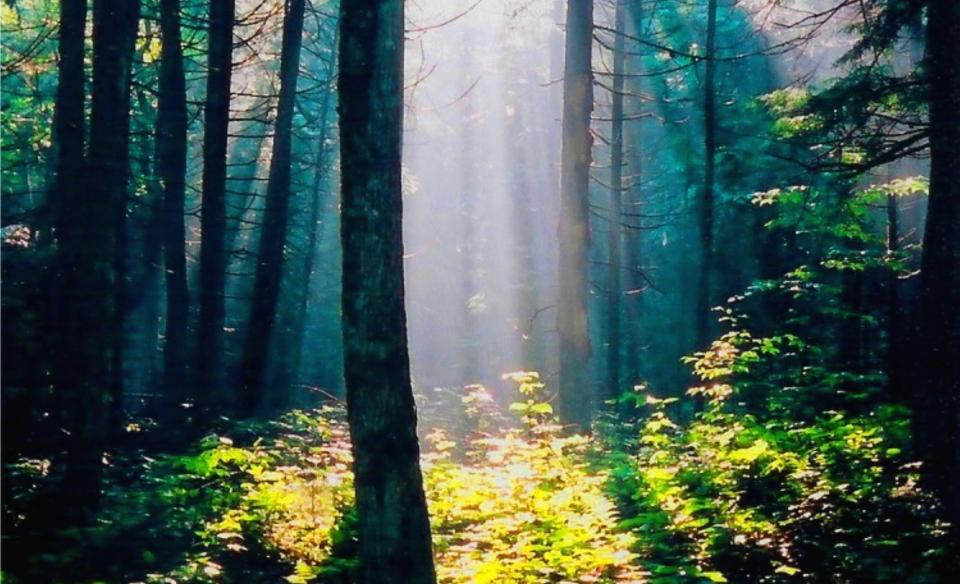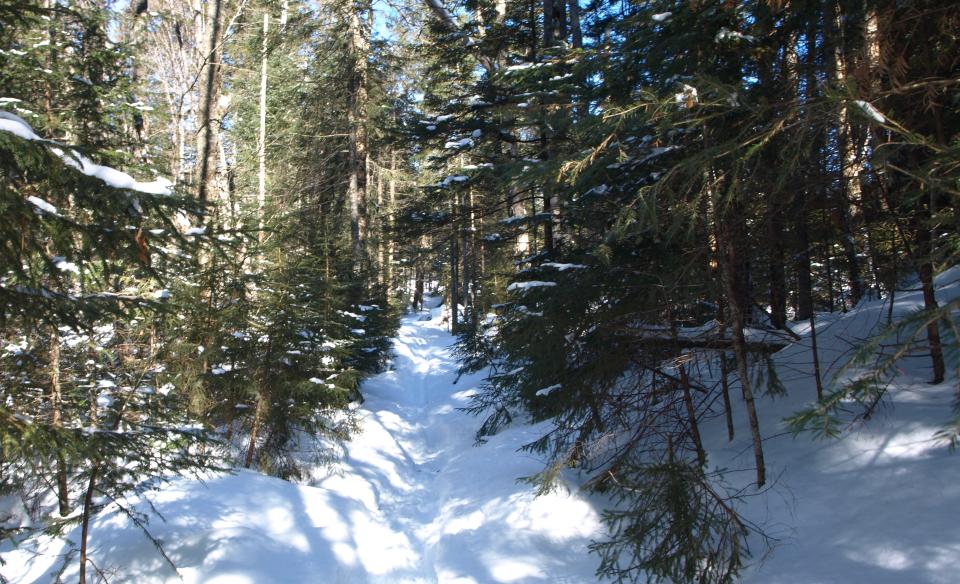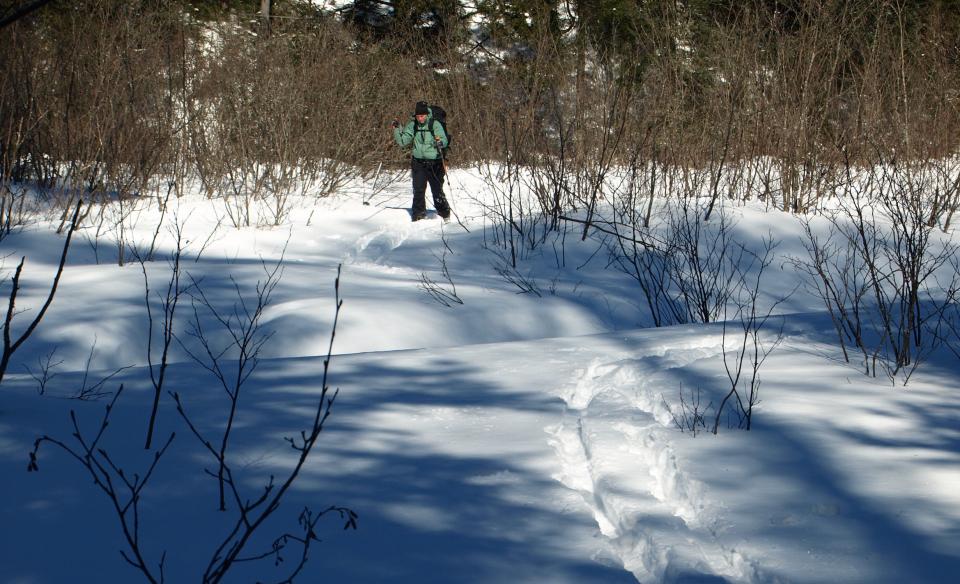A hidden backcountry gem, the Wilson Pond Trail takes you through open forest, past Grass Pond, and up gentle hills to the shores of the pond. Large rocks and scenic hills make the pond, and its lean-to, a stunning destination.
Key takeaways
- Distance: 5.5 miles round trip
- Elevation gain: 630 feet
- Elevation at shore: 2,160 feet
- Hike includes a water crossing
Hiking to Wilson Pond
Wilson Pond is one of those hidden ponds that so many would consider a backcountry gem. With a well-placed lean-to on its shore, it makes for an excellent destination for a weekend of hiking and fishing.
From the trailhead you will be on a very easy to moderate trail. The forest is fairly open and easy to see through. Soon you will find yourself passing by Grass Pond to your left, slightly through the trees, a cross-road is found here, ignore this and stay straight. In a bit you will be at a short steep descent to a crossing of Loon Brook. Loon brook is not too big, but the crossing can be a bit tough during high water. Past the crossing, the trail follows the shore for a bit before climbing steeply to higher ground.
The trail will continue to climb steadily through the Blue Ridge Wilderness. Some rolling hills will be intermixed, but mostly you will be gaining slight elevation. Eventually the trail makes a very hard left and starts a moderate hike to the shore of Wilson Pond and the lean-to sitting at this location. Attractive rock outcroppings and deep blue waters add to the majestic scene. The slope of Blue Ridge, one of the tallest peaks in the Adirondacks, outside of the High Peaks, is opposite.
Wilson Pond in the winter
This trail gets very little use in the winter making travel harder. Traction is also touchy for skiing as well as ample ground cover due to a tight canopy. The trail is designed perfectly for snowshoeing and cross-country skiing, but it might take a bit more of an effort to break trail to the pond. Be prepared for all winter conditions.
Hiking over a frozen body of water can access you to areas not seen by most in the summer. With that being said it is a dangerous activity to cross frozen water bodies and should be done with care and respect for your environment. Know the ice conditions and be prepared for anything including heavy winds, snow drifts, whiteouts, slushy conditions, and thin ice.
Experience more trails in Hamilton County
Looking to find some more trails to hike in Hamilton County? With hundreds of miles of trails, we can help you find more amazing hikes in the big outdoors.
Fishing
Herd paths around the shore can access other spots around the pond. There is no ramp access for boats, but you could carry a boat here, although the carry would be very long.
Fish species: Brook trout
Special regulations: Always follow state fishing regulations and be sure to pick up a NYS Freshwater Fishing Guide at your local outfitters or regional DEC office.
How to get there
From the intersection of Route 28 and Route 30 in Blue Mountain Lake follow Route 28 toward Raquette Lake. Continue for 2.5 miles to the state trailhead on the left.





